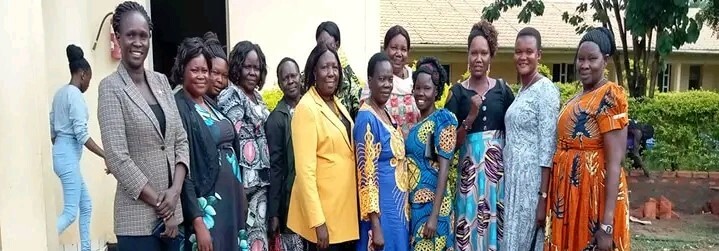At least 27 women parliamentarians from Eastern Equatoria State gathered last week for a one-day training session focused on the Revitalized Agreement on the resolution of conflict in South Sudan (R-ARCSS), the road map, and the Constitutional-making process.
The training, organized by Voice for Change (VFC) and funded by the Civil Society Facility (CSF), took place in the state capital, Torit.
The training aimed to equip the women parliamentarians with a deeper understanding of the peace agreement, the road map, and the constitutional-making process.
Susan Michael, the project coordinator for Voice for Change, emphasized the significance of this initiative in empowering women to participate in the gender-inclusive constitutional-making process and legislative reforms actively.
“It is all about mainstreaming gender participation in the constitution-making process as part of legislative reforms. So, it is about enhancing women’s participation in understanding the R-ARCSS, Road Map, or legislative and constitutional-making processes,” said Susan.
She highlighted that the 27 women parliamentarians represent the voices of women at the grassroots level, making it essential to equip them with the knowledge to share with their constituencies.
Angela Achiro Onorio, the Chairperson for the Women Parliamentary Caucus in the Eastern Equatoria State Legislative Assembly, expressed her appreciation for the training, pointing out that this was the first time Eastern Equatoria women parliamentarians had received training on the designed road map.
“When the road map was designed, women did not get the opportunity to be trained. Maybe women at the national level received some training, but most women legislators at the state level did not know much about the roadmap. Through this training, state women legislators can have sufficient time to read the peace agreement documents and have a better understanding of the gaps in the agreement,” said Onorio.
Mary Juan, the chairperson of the Peace and Security Committee in the Eastern Equatoria State Legislative Assembly, highlighted the advocacy skills she gained from the training, particularly related to the 35% affirmative action.
Juan also expressed concerns about pending issues in the R-ARCSS, such as the unification of forces, census, and repatriation of returnees, which could potentially hinder the upcoming elections in the country.
“I have learned a lot, especially on how women can advocate for their 35%. I have also learned about the election and its challenges. For the election to be implemented, there are gaps that need to be addressed, such as the unification of forces, constitutional making process, and national population census. Additionally, there are people in refugee camps in Uganda and Kenya who have not been repatriated. If these issues are not resolved, the upcoming elections could face serious obstacles,” expressed Juan.
Tharik Josephine Dhino, a member of parliament representing the South Sudan Opposition Alliance (SSOA), stressed the persistent gap in the representation of women in decision-making processes. Josephine called on all parties to the agreement to expedite the implementation of the peace document to ensure lasting peace in the country.
“As women, our role in parliament is to ensure peace. We must advocate and lobby to focus parties’ attention on the people’s issues. Lack of representation in decision-making is a challenge. We want to fight for equality. Some women legislators lack access to education, and this lack of support leads to challenges like children leaving school prematurely and engaging in harmful activities. These are the challenges we, as Eastern Equatoria State Legislative Assemblywomen parliamentarians, are striving to address,” Josephine emphasized.




